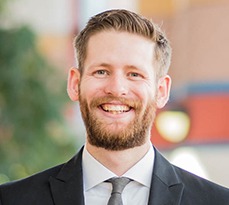New programme to collaborate with financial services regulators in Indonesia and help create a more enabling regulatory environment for fintech, is announced by the Cambridge Centre for Alternative Finance at Cambridge Judge Business School.

The Cambridge Centre for Alternative Finance (CCAF) at the University of Cambridge Judge Business School announced that it is launching a programme to collaborate with financial services regulators in Indonesia to identify capacity building opportunities and knowledge requirements to aid the effective regulation of digital financial services, assist in facilitating regulatory innovation initiatives, and help create a more enabling regulatory environment for fintech and the advancement of financial inclusion.
The programme, which is supported through a grant from the Bill & Melinda Gates Foundation (BMGF), is designed to identify a set of well-defined and addressable challenges in regulating and supervising fintech activities in Indonesia. It will also scope potential areas to collectively tackle these challenges by leveraging technology-enabled technical assistance and utilising good practices and lessons learned from other jurisdictions. This programme will enable the CCAF to play a key role in mapping and strengthening relationships between key stakeholders in the Indonesian fintech ecosystem to support the delivery of follow-on programmes.
Through this programme, the CCAF is hoping to forge closer working relationships with Indonesian regulatory institutions and will identify an effective operational model optimised to deliver capacity building, knowledge transfer and education activities.
Currently, over 98% of all enterprises in Indonesia are micro-enterprises with assets below $3,500. Additionally, most households operate almost entirely on cash and save based on physical assets such as jewellery or livestock. Developing and expanding the availability of affordable and reliable digital financial services is a key priority for the advancement of financial inclusion.
“We will be working closely with the regulatory institutions in Indonesia to identify the priorities that will evolve fintech regulation across the world’s largest island country,” says Hunter Sims, Director of Operations at the CCAF. “This programme combines our capabilities in capacity building, bespoke regulatory education, country-level research, digital fintech tools and technical assistance to identify a regulatory approach that accelerates access to affordable financial products and services for millions of consumers and MSMEs.”
“The Bill and Melinda Gates Foundation is excited to deepen our engagement within Indonesia to support advancements in financial inclusion through this important initiative,” says Brooke Patterson, Program Officer of the Gates Foundation. “Supporting the development of fit for purpose regulation and supervision is an essential condition to the sustainable development of digital financial services.”
“A regulatory environment which facilitates financial innovation can play an important role in encouraging new products and services that improve the experiences of consumers,” says Nick Clark, Lead in Regulation at the CCAF and the Project Manager of the Programme in Indonesia. “This initiative will look to address the most pressing, addressable priorities of Indonesian regulators to support the effective regulation of fintech in Indonesia, and to widen financial inclusion for millions of consumers in the world’s fourth most populous country.


